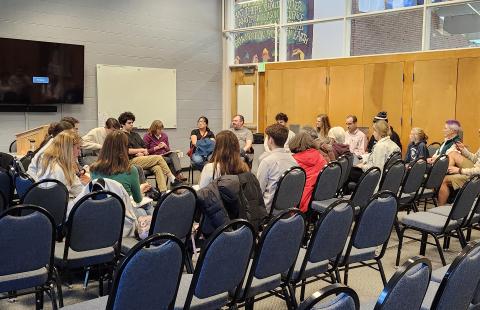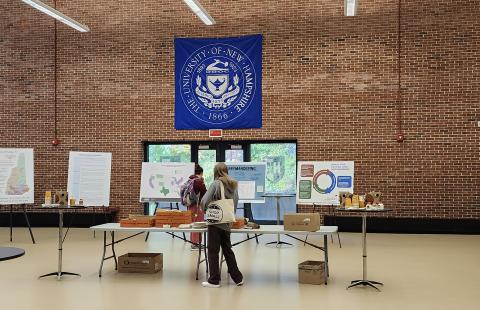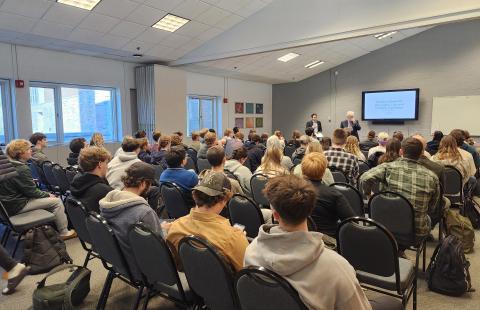Citizenship Summit: What Matters to YOU?
Wednesday, October 16, 2024
9:00 a.m. - 8:00 p.m.
Join RGSCP as we host a day of discussions in the MUB with UNH faculty and outside experts on big topics like voting rights, climate change, disinformation and social media, political issues, international concerns, polling, and more. This event is open to the public and no registration is required, except for the 5:00 p.m. session "Teaching Civics: The Impact of SB 216," which is open to the public but requires pre-registration to receive a meal.
Discussion sessions will be run using tenets of the Civil Discourse Lab to foster meaningful and respectful information sharing. Sessions will take place in individual breakout rooms in the MUB throughout the day. You can also stop by the Strafford Room all day long for posters, handouts, and information tables on many subjects not covered in the discussion sessions. Snacks will be provided and replenished throughout the day!
Finally, meet us back in the Strafford Room at 7:00 p.m. for an exciting keynote address by Katie Fahey, founder, executive director, and campaign manager of Voters Not Politicians, a grassroots, nonpartisan campaign that ran a successful effort to end gerrymandering in Michigan by amending the State Constitution in 2018 with 61 percent of the vote. Now, she is executive director of The People, a nonprofit organization committed to sharing the lessons learned in Michigan with voters across the ideological spectrum in all 50 states, bridging political divides and supporting nonpartisan good governance reforms nationwide. The People focuses on nonpartisan, citizen-led civic engagement, deliberative democracy, and consensus-building processes.
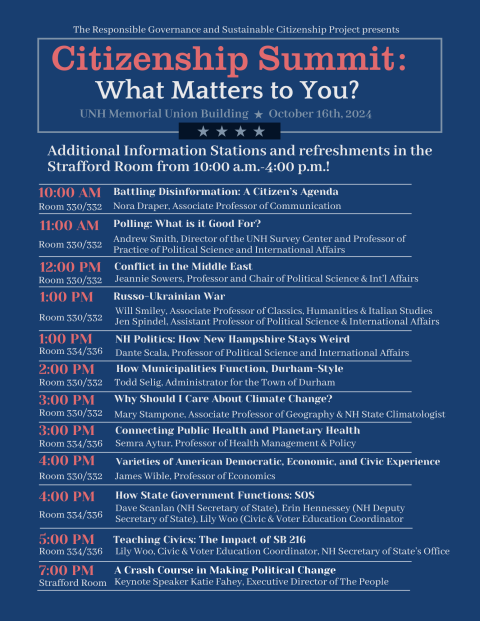
Summit Speakers
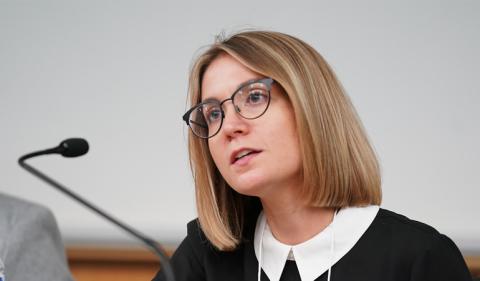
Nora A. Draper is an associate professor in the University of New Hampshire’s Department of Communication, where she studies the role of media and technology institutions on society. Her areas of specialization include digital media, privacy, surveillance, reputation, identity, and promotional cultures. Draper’s published works appears in journals such as New Media & Society, Surveillance & Society, Policy & Internet, Critical Studies in Media Communication, Feminist Media Studies, and Communication, Culture and Critique.

Dr. Andrew Smith is the Director of the University of New Hampshire Survey Center, a non-partisan academic survey research organization. He has nearly 40 years’ experience in academic survey research and has been Director of the UNH Survey Center since 1999. Dr. Smith is also Professor of Practice in Political Science in the UNH Department of Political Science where his teaching and research have focused on survey methodology, elections, and public policy. He is the author, with David Moore, of The First Primary: New Hampshire’s Outsize Role in Presidential Nominations.
Dr. Smith is a member of the American Association for Public Opinion Research (AAPOR) and is past President of its New England Chapter. He served on the AAPOR Task Force on 2020 Pre-Election Polling. Dr. Smith is also a founding member and past President of the Association of Academic Survey Research Organizations (AASRO).
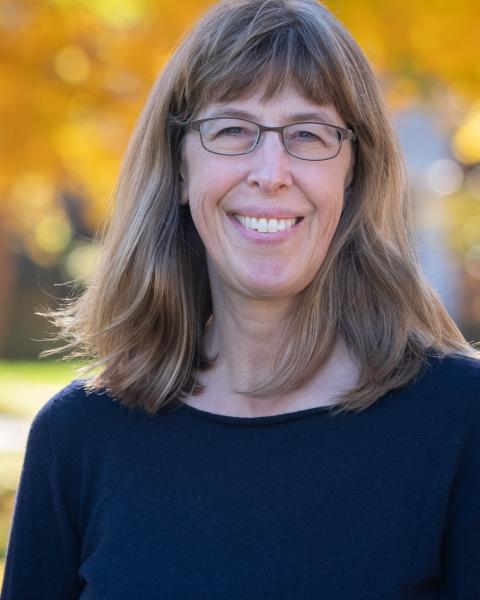
Jeannie Sowers is Professor and Chair of the Political Science and International Affairs Department at UNH. Her research focuses on political and environmental change in the Middle East and North Africa. She holds a Ph.D. from Princeton University and a B.A. from Harvard University, and has held postdoctoral appointments at Harvard and Oxford.
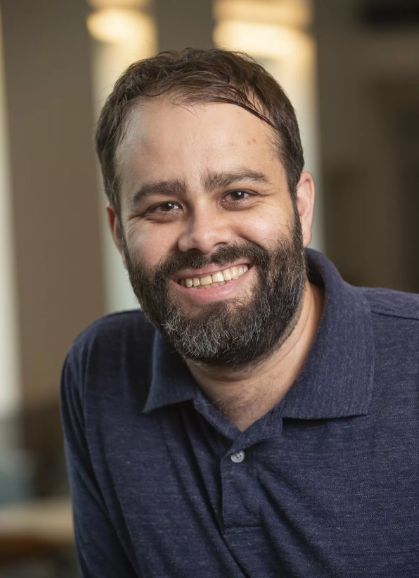
Will Smiley is an Associate Professor in the Department of Classics, Humanities, and Italian Studies at UNH. He is a historian of international law, with particular interests in the Russian and Ottoman Empires. His research is based on extensive archival work in Moscow, Istanbul, and London, and draws on training in both history and law. He received his JD from Yale Law School and his PhD in Middle Eastern Studies from the University of Cambridge.
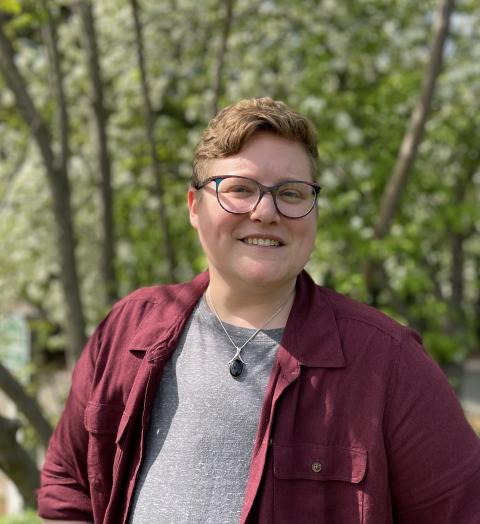
Jen Spindel is an assistant professor of political science at UNH, where she also directs the international affairs program. Her research focuses on international security, foreign policy, and civil-military relations, and has been published in journals including European Journal of International Security, Security Studies, Foreign Policy Analysis, and Armed Forces & Society. For the 2024-25 academic year, she is a non-resident fellow with the Institute for Future Conflict at the US Air Force Academy.
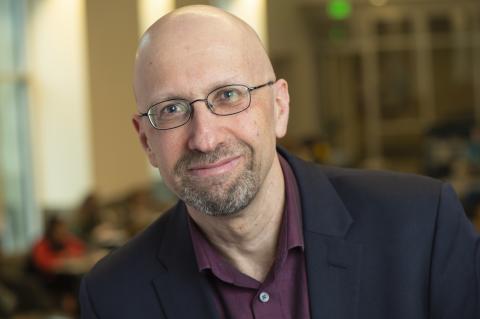
Dante Scala is a professor of political science at the University of New Hampshire. He has been an observer of New Hampshire politics for more than two decades, and has written two books on the Granite State and the presidential nomination process, as well as numerous shorter works.
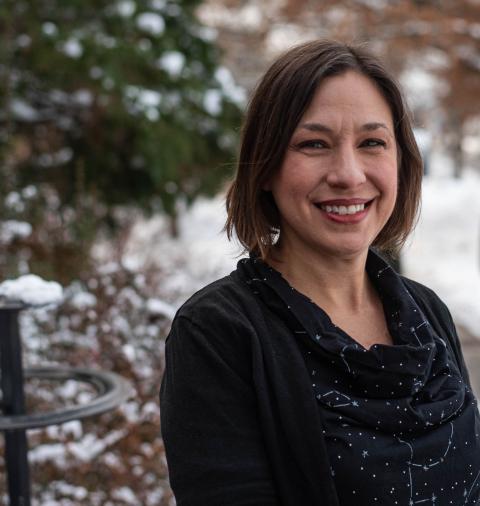
Mary Stampone is an Associate Professor of Geography and the New Hampshire State Climatologist. She teaches undergraduate courses on weather, climate, and natural hazards and conducts research on variability and change in regional climate with an emphasis on hydroclimatic hazards (i.e., drought, flooding, severe weather). In her role as the State Climatologist, she provides New Hampshire citizens, educators, and agencies with weather and climate information in support of environmental management and adaptation activities.
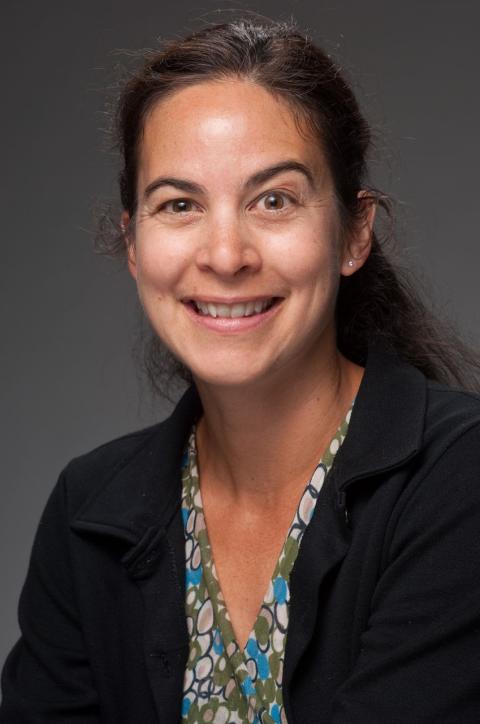
Semra Aytur, PhD, MPH is a Professor in the Department of Health Policy and Management at the University of New Hampshire. Dr. Aytur is an epidemiologist whose research focuses on community resilience, nature connectedness, and the relationships between the built, natural, and social environment in keeping people well. She is deeply committed to collaborative learning and research that supports innovative ways to improve health behavior and planetary health.
She has published over 70 scientific journal articles and two books on public health and environmental health.
Dr. Aytur earned a PhD in Epidemiology from the University of North Carolina (UNC) Chapel Hill followed by a postdoctoral fellowship in cardiovascular epidemiology. She also has a Master’s in Public Health (MPH) from Boston University.
Dr. Aytur serves as the Climate Justice Co-Chair for New Hampshire Healthcare Workers for Climate Action (NH HWCA). In 2022, Dr. Aytur received the Climate and Health Leadership Award from the American Public Health Association (APHA) Center for Climate, Health, and Equity. She has also been recognized by APHA as a Betty J. Cleckley Minority Issues Research awardee. Dr. Aytur is a member of an interdisciplinary team charged with revising the CDC’s “Building Resilience Against Climate Effects” (BRACE) framework.
She is also a member of the planning committee for the NH Environmental Justice Roundtable.
Her work also supports forest conservation and ocean health, and she co-leads a family-owned marine sustainability organization, Marine Microverse Institute (MMI), based in Kittery, Maine.
She is deeply committed to collaborative learning and research that supports innovative ways to improve health behavior and planetary health.
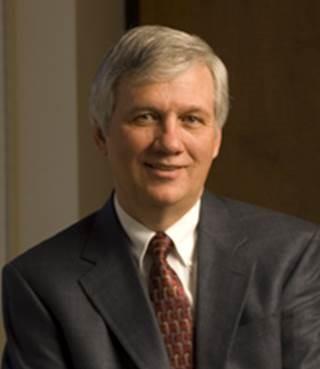
James Wible completed doctoral work in economics at Penn State University where he was also a fellow in the Interdisciplinary Graduate Program in the Humanities. In that program, he studied the philosophies of Aristotle, Rawls, and American pragmatism. Other interdisciplinary studies were in the history of psychology and cognitive psychology. In economics, Professor Wible’s research has focused on the history and methodology of macroeconomics and its theory of anticipating the future known as rational expectations. In 1998 he published, The Economics of Science: Methodology and Epistemology as if Economics Really Mattered and in 2023, The Economics of Scientific Misconduct: Fraud, Replication Failure and Research Ethics in Empirical Inquiry. Most of Professor Wible’s academic career has been with the Department of Economics, Paul College of Business and Economics, at the University of New Hampshire in Durham. He has served in several administrative positions as department chair, associate dean, and interim dean. He has taught courses in macroeconomics, money and banking, law and economics, the economics of sports, and the philosophy and economics of science. His undergraduate degree in economics is from Wheaton College, Illinois, including a summer term in Europe when the US abandoned the gold-standard. These experiences led to a graduate degree and life-long interests in economics.
Keynote Speaker: Katie Fahey
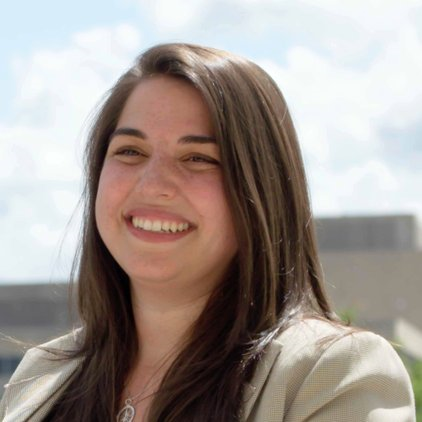
An experienced leader in the democratic reform movement, Katie leads The People in its mission to empower individuals to get involved in the political process. Previously, Katie was the Executive Director of Voters Not Politicians (VNP), where she led over 14,000 volunteers across Michigan to pass a ballot proposal with 61% of the vote that made political gerrymandering illegal. Prior to VNP, she worked in the garbage and recycling industry.

